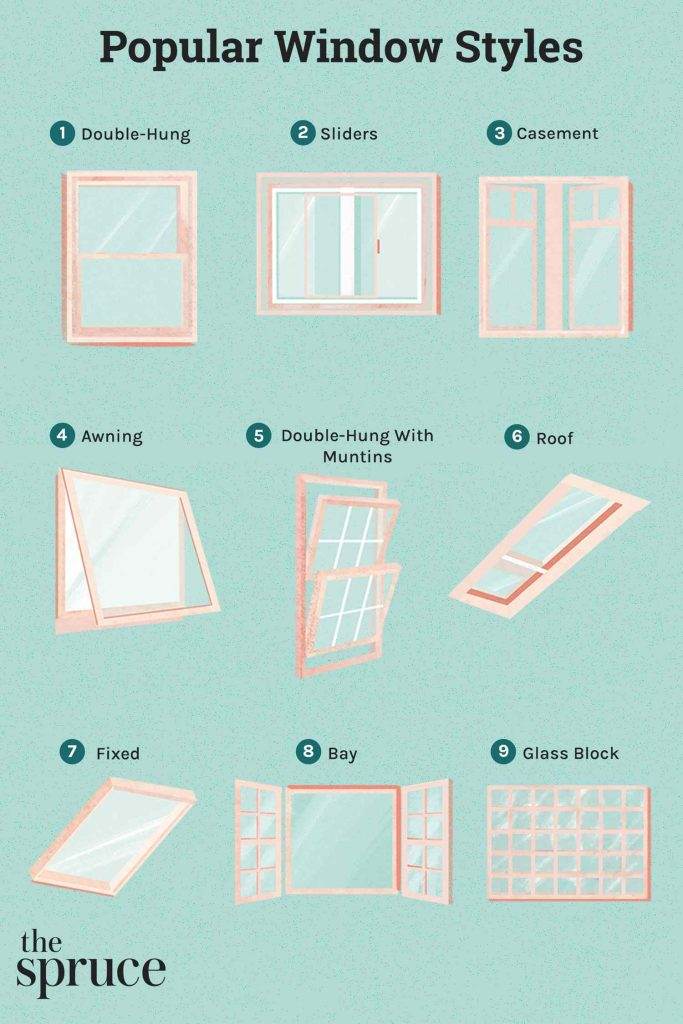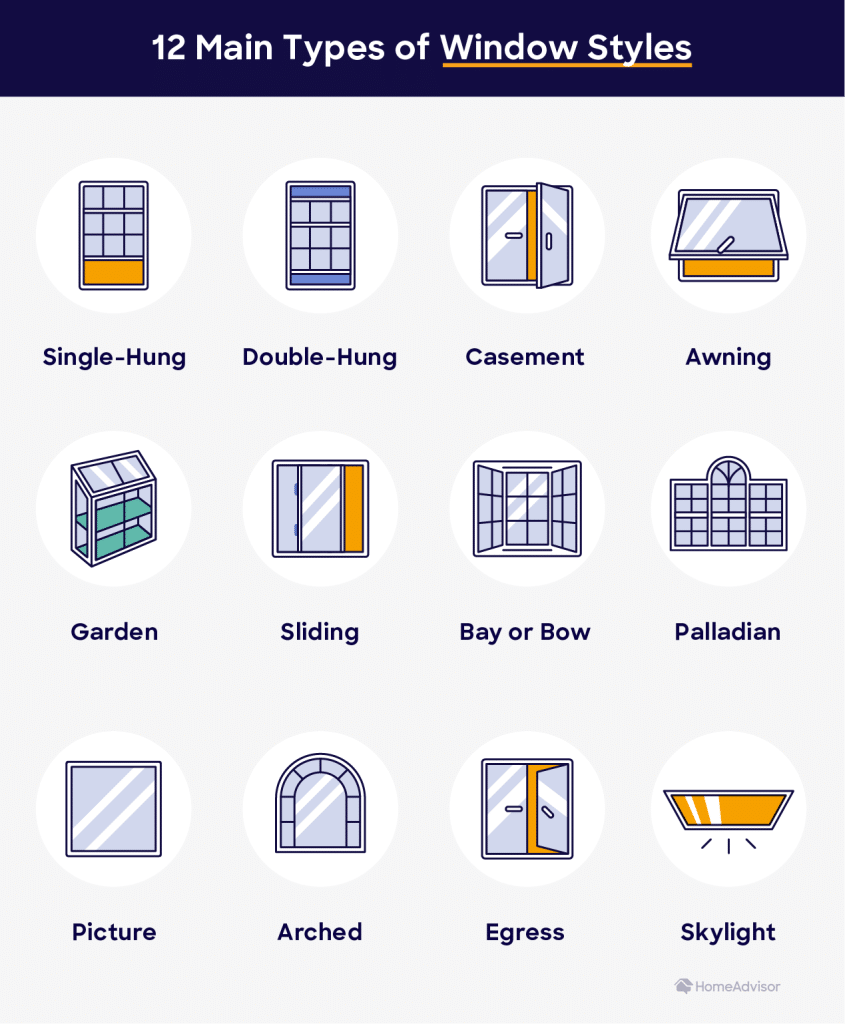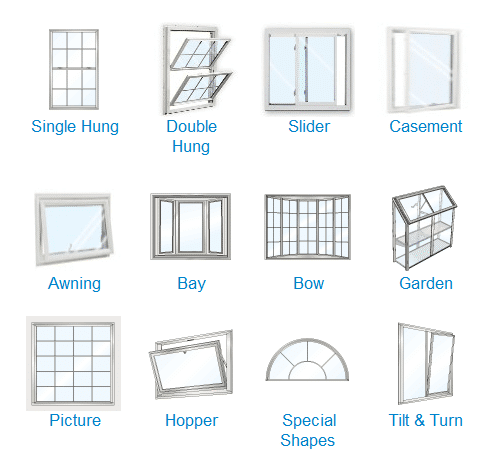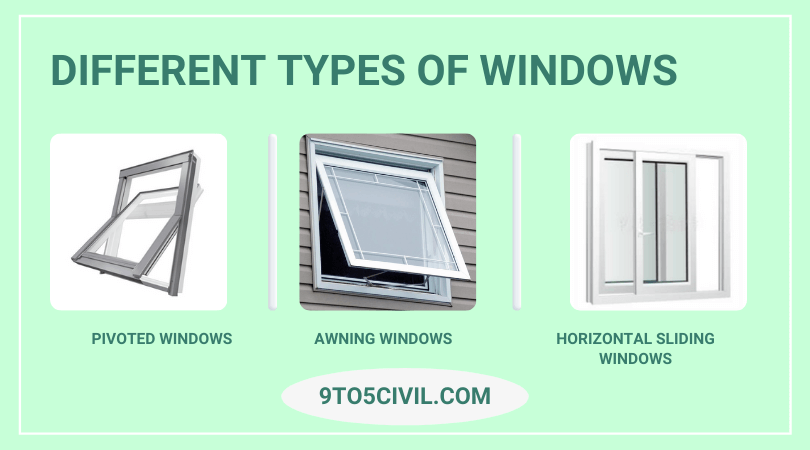Thinking about installing impact windows in your home, but unsure about the financial benefits? We’ve got you covered. In this article, we’ll explore the impact that impact windows can have on your home value. From increased curb appeal to enhanced safety features, we’ll break down the various ways these windows can add significant value to your property. Whether you’re looking to sell or simply improve your living space, impact windows might just be the key to unlocking a higher home value.
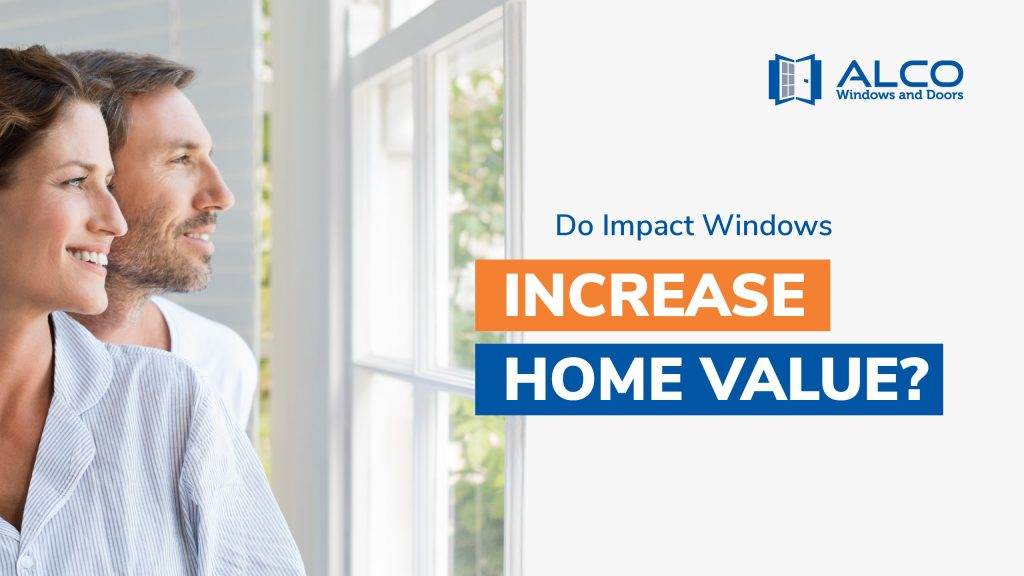
This image is property of info.alcoimpact.com.
The Benefits of Impact Windows
When it comes to home improvement projects, impact windows offer a wide range of benefits that make them a popular choice among homeowners. From increased safety and security to energy efficiency and noise reduction, impact windows provide an all-round solution for homeowners looking to enhance their living environment. Let’s take a closer look at each of these benefits.
Increased Safety and Security
One of the primary advantages of impact windows is the enhanced safety and security they provide for your home. Made with multiple layers of glass and a durable interlayer, these windows are designed to withstand strong impacts, such as those from flying debris during storms or attempted break-ins. The impact-resistant glass acts as a barrier, making it much more difficult for intruders to gain access to your home. With impact windows, you can have peace of mind knowing that your loved ones and possessions are well-protected.
Protection Against Natural Disasters
Living in an area prone to hurricanes or other severe weather conditions can be unnerving. However, with impact windows, you can have an added layer of protection against these natural disasters. The construction of impact windows makes them highly resistant to powerful winds, flying debris, and even torrential rains. Their ability to withstand the impact of these elements helps to minimize the risk of structural damage and maintain the safety and integrity of your home during adverse weather events.
Energy Efficiency
Another significant benefit of impact windows is their energy efficiency. These windows are designed with advanced features to help regulate the temperature inside your home, reducing the need for excessive heating or cooling. The double or triple-pane glass, along with the air-tight construction, provides excellent insulation, preventing drafts and heat transfer. By minimizing air leakage, impact windows help maintain a consistent indoor temperature, resulting in energy savings and lower utility bills.
Noise Reduction
If you live in a noisy neighborhood or near a busy street, impact windows can significantly reduce the amount of noise that enters your home. The layers of glass and the interlayer in impact windows act as a sound barrier, effectively blocking out external noises. Whether it’s the sound of traffic, construction work, or loud neighbors, impact windows provide a peaceful and quiet living environment. This benefit is especially valuable for those who work from home or simply prefer a serene atmosphere.
Factors That Influence the Value
When considering the value impact windows add to your home, it’s essential to understand the various factors that can influence their perceived worth. Although impact windows offer numerous benefits, their impact on home value can vary depending on certain factors. Let’s explore some of these factors:
Location
The location of your home plays a significant role in determining the value impact windows can add. If you live in an area prone to severe weather conditions, such as hurricanes or tornadoes, impact windows are highly valued as they provide added protection and peace of mind. Additionally, properties in areas with high noise pollution, such as near busy roads or airports, can benefit from the noise reduction properties of impact windows.
Quality of the Windows
The quality of the impact windows you install also affects their value. High-quality, durable windows manufactured by reputable brands will undoubtedly have a positive impact on the perceived value. Homebuyers appreciate the peace of mind that comes with knowing they are investing in reliable and long-lasting windows. On the other hand, low-quality impact windows may not provide the same level of protection or energy efficiency, potentially diminishing their value.
Visible Upgrades
Visible upgrades, such as the aesthetics of your impact windows, can greatly influence their perceived value. Impact windows are available in a variety of styles, designs, and frame materials, allowing homeowners to choose options that complement their property’s architecture. Investing in impact windows that enhance the overall curb appeal of your home can positively impact its value, as potential buyers are often attracted to visually appealing and well-maintained properties.
Insurance Discounts
In certain regions, homeowners with impact windows may be eligible for insurance premium discounts. This is due to the added safety and security benefits associated with impact windows, which reduce the risk of property damage and theft. Before installing impact windows, it’s worth checking with your insurance provider to determine if any discounts are available. These potential savings can add value to your home in the long run and offset the upfront costs of installation.
Comparing Impact Windows to Regular Windows
When deciding whether to invest in impact windows, it’s essential to understand how they compare to regular windows. Take a look at some key factors to consider when making this comparison:
Higher Upfront Cost
One of the most significant differences between impact windows and regular windows is their cost. Impact windows generally have a higher upfront cost due to their specialized construction and materials. However, it’s important to remember that impact windows offer long-term benefits, such as increased safety, energy efficiency, and noise reduction, which can contribute to savings over time.
Potential Insurance Savings
While impact windows may come with a higher initial cost, they can potentially result in insurance savings over the lifetime of your home. As mentioned earlier, many insurance providers offer premium discounts for homeowners with impact windows due to the added security and protection they provide. When calculating the overall cost, it’s worth factoring in these potential insurance savings to get a more accurate understanding of the value impact windows can add.
Long-Term Energy Savings
Another aspect to consider when comparing impact windows to regular windows is the long-term energy savings they can provide. Due to their advanced design and construction, impact windows offer excellent insulation, helping to reduce energy consumption. By minimizing heat transfer and air leakage, impact windows can contribute to lower heating and cooling costs throughout the year. This potential for energy savings should be taken into account when evaluating the value of impact windows.
Increased Resale Value
Investing in impact windows can also have a positive impact on the resale value of your home. Buyers are often willing to pay a premium for properties that offer enhanced safety, security, and energy efficiency features. The addition of impact windows can make your home stand out among others on the market, increasing its perceived value and attracting potential buyers. When considering the costs and benefits, it’s crucial to consider the potential long-term return on investment that impact windows can offer.
Cost vs Value: ROI of Impact Windows
Calculating the return on investment (ROI) of impact windows involves considering the initial cost and the potential value they add to your home. Let’s explore the various factors that influence the ROI of impact windows:
Calculating Return on Investment
To calculate the ROI of impact windows, you need to compare the initial cost of installation against the potential increase in home value. The initial cost typically includes the price of the windows, professional installation, and any additional modifications required. The potential increase in home value can depend on factors like location, the quality of the windows, and the visible upgrades they provide. By subtracting the initial cost from the potential increase in home value, you can determine the ROI percentage.
Factors That Determine ROI
The ROI of impact windows can vary based on several factors. These factors include the quality of the windows, the location of your property, any insurance premium discounts, and the current real estate market conditions. Investing in high-quality impact windows, especially in areas prone to severe weather or high noise levels, can enhance the potential ROI. Additionally, taking advantage of insurance premium discounts and selling in a seller’s market can positively impact your ROI.
Expected ROI Range
While exact ROI figures can vary, it’s generally expected that impact windows can provide a favorable return on investment. Research suggests that impact windows can yield an ROI ranging from 70% to 80%. This means that for every dollar spent on impact window installation, homeowners can potentially expect a return of up to 80 cents in increased home value. Considering the various benefits they offer, impact windows are a valuable investment that can pay off in both monetary and intangible ways.

This image is property of wellingtonhometeam.com.
Impact Windows and Home Appraisals
When it comes to home appraisals, impact windows can have a significant positive impact on the overall value of your property. Let’s explore how impact windows affect home appraisals and contribute to increased value:
How Impact Windows Affect Home Appraisals
During a home appraisal, a professional appraiser assesses your property and evaluates various factors to determine its value. Impact windows play a crucial role in this evaluation, as they are considered valuable upgrades that enhance safety, security, energy efficiency, and overall desirability. Appraisers take into account the presence of impact windows and the potential cost savings associated with features like reduced insurance premiums and energy efficiency upgrades.
Adding Value to the Home
The presence of impact windows can significantly increase the appraised value of your home. Appraisers consider the added protection against natural disasters, improved safety and security, noise reduction, and potential energy savings when determining the value impact windows contribute. The market appreciation for impact windows can vary, but in general, they are considered valuable improvements that attract buyers and increase the overall desirability of your home.
The Importance of Professional Installation
When investing in impact windows, it’s crucial to prioritize professional installation to ensure proper fit, function, and longevity. Here are some reasons why professional installation is essential:
Ensuring Proper Fit and Function
Impact windows require precise measurements and expert installation techniques to ensure a proper fit and function. Professional installers have the necessary knowledge, experience, and tools to take accurate measurements and ensure seamless installation. By entrusting the installation to professionals, you can avoid common pitfalls that may arise from improper sizing or installation, ensuring that your impact windows function optimally and provide the intended benefits.
Warranty and Guarantees
Professional installation often comes with warranties and guarantees, giving you additional peace of mind. Reputable installers typically offer warranties that cover their workmanship, ensuring that in the rare event of any issues, they will rectify them at no additional cost to you. Having this level of protection allows you to rest assured that your investment is safeguarded, and any concerns will be promptly addressed.
Avoiding Potential Damages
Improper installation of impact windows can lead to a range of issues, including air and water leaks, compromised integrity, and reduced effectiveness. Professional installers are trained to handle the installation process efficiently, minimizing the risk of damage to both the windows and your home’s structure. Their expertise ensures that the windows are correctly sealed, enhancing their performance and longevity.

This image is property of info.alcoimpact.com.
Impact Windows vs Home Security Systems
While impact windows offer enhanced safety and security, it’s essential to understand how they compare to dedicated home security systems. Let’s explore the role of impact windows in home security and their complementary features with security systems:
Role of Impact Windows in Home Security
Impact windows play a vital role in enhancing home security by providing an additional layer of protection against break-ins and forced entry. The strength and durability of impact windows make it significantly more challenging for intruders to breach your home, acting as a deterrent. By investing in impact windows, you can significantly reduce the vulnerability of your home, making it less attractive to potential burglars.
Complementary Features of Security Systems
While impact windows offer a high level of security, they can be further enhanced by incorporating a dedicated home security system. Security systems include features such as surveillance cameras, motion sensors, alarms, and home automation capabilities. These systems provide an additional layer of defense by actively monitoring and deterring intruders. By combining impact windows with a security system, homeowners can enjoy comprehensive protection and peace of mind.
Understanding Impact Window Ratings
When shopping for impact windows, it’s important to understand the various ratings that indicate their performance and capabilities. Two key ratings to consider are impact resistance ratings and energy efficiency ratings:
Impact Resistance Ratings
Impact resistance ratings measure the ability of impact windows to withstand strong impacts from various sources, including flying debris and attempted break-ins. The most common impact rating is the Large Missile Impact Level D, which indicates that the window can withstand the impact of a nine-pound 2×4 lumber traveling at a certain velocity. Higher impact resistance ratings suggest a higher level of protection provided by the window.
Energy Efficiency Ratings
Energy efficiency ratings indicate the ability of impact windows to prevent heat transfer and air leakage. The most commonly referred to energy efficiency rating is the U-factor, which measures the heat transfer through the window. The lower the U-factor, the better the window’s insulation properties. Energy Star certification is another reliable indicator of energy efficiency, with certified windows meeting stringent efficiency standards established by the Environmental Protection Agency (EPA).

This image is property of www.aspwindows.com.
Choosing the Right Impact Windows
Selecting the right impact windows for your home requires careful consideration of several factors. Here are some key considerations to keep in mind when choosing impact windows:
Considerations for Window Selection
Start by assessing your specific needs and preferences. Consider factors such as the level of impact resistance required, the climate you live in, and the noise levels in your area. It’s also important to research reputable manufacturers and compare their offerings, looking for windows that meet or exceed industry standards. Taking the time to select the most suitable impact windows for your home will ensure that you maximize the benefits they provide.
Styles and Designs
Impact windows come in a variety of styles and designs to suit different architectural preferences. Whether your home has a traditional, contemporary, or modern design, you can find impact windows that blend seamlessly with your home’s aesthetic. Consider the frame material options, such as vinyl, aluminum, or fiberglass, and choose the style that enhances the look and value of your home.
Durability and Maintenance
Investing in impact windows means investing in durability and low maintenance. Look for windows that are built to last, with features such as reinforced frames and impact-resistant laminated glass. Additionally, consider the ease of maintenance, as you want windows that are easy to clean and require minimal upkeep. Choosing impact windows with durable materials and simple maintenance requirements will ensure that they continue to provide long-term value.
Pricing and Budget
Lastly, budget considerations are essential when choosing impact windows. Research the average cost for impact windows in your area and establish a budget that aligns with your financial situation. Remember to factor in the potential long-term savings, such as energy efficiency and insurance premium discounts when evaluating the overall value of the windows. While it’s important to find a reasonably priced option, prioritize quality and performance to ensure that you receive the full benefits of impact windows.
Conclusion
Investing in impact windows provides homeowners with a wide range of benefits that enhance safety, security, energy efficiency, and overall value. From their ability to withstand natural disasters to the potential for insurance savings and long-term energy efficiency, impact windows are a valuable addition to any home. When considering the cost vs value, impact windows have the potential to provide a favorable return on investment and increase the overall resale value of your property. By prioritizing professional installation and understanding the various factors that influence their value, homeowners can make informed decisions and reap the full benefits of impact windows. So why wait? Enhance your home with impact windows and enjoy the numerous advantages they bring to your living space.
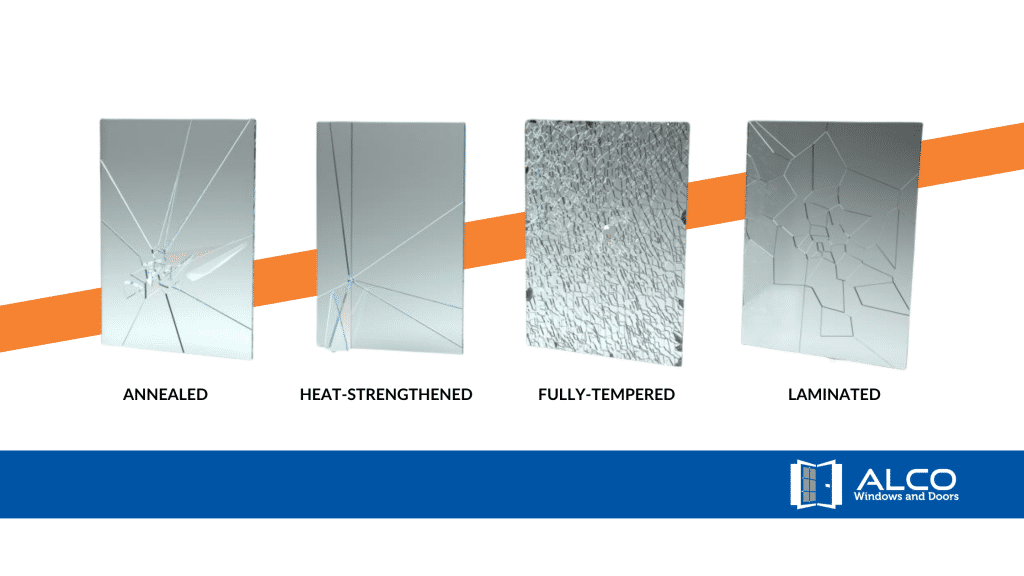
This image is property of info.alcoimpact.com.

